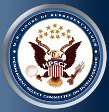Congressional task force on CENTCOM releases initial report
 On August 11, the House Permanent Select Committee on Intelligence announced the release of the Congressional task force on CENTCOM’s initial report.
On August 11, the House Permanent Select Committee on Intelligence announced the release of the Congressional task force on CENTCOM’s initial report.
A Congressional joint task force (JTF) investigating allegations of intelligence manipulation at U.S. Central Command (CENTCOM) released an initial report today detailing persistent problems in 2014 and 2015 with CENTCOM analysis of U.S. efforts to train the Iraqi Security Forces and combat the so-called Islamic State in Iraq and Syria.
The JTF found that intelligence products approved by senior CENTCOM leaders typically provided a more positive depiction of U.S. anti-terrorism efforts than was warranted by facts on the ground and were consistently more positive than analysis produced by other elements of the Intelligence Community. It further determined that numerous process changes implemented at CENCTOM as well as leadership deficiencies resulted in widespread dissatisfaction among CENTCOM analysts who felt their superiors were distorting their products.
Created in response to a whistleblower allegation, the JTF was established by the Chairmen of the House Armed Services Committee, House Permanent Select Committee on Intelligence, and the Subcommittee on Defense of the House Appropriations Committee. It is led by Reps. Ken Calvert, Mike Pompeo, and Brad Wenstrup.
Rep. Calvert said, “The leadership failures at CENTCOM reach to the very top of the organization. I hope that the new CENTCOM commander and the new Director of Intelligence can turn things around quickly. As for the task force, it is critical that we follow up on the deficiencies highlighted in this initial report. What happened at CENTCOM is unacceptable – our warfighters suffer when bad analysis is presented to senior policymakers. We must continue our efforts until we fix it.”
Rep. Pompeo said, “After months of investigation, this much is very clear: from the middle of 2014 to the middle of 2015, the United States Central Command’s most senior intelligence leaders manipulated the command’s intelligence products to downplay the threat from ISIS in Iraq. The result: consumers of those intelligence products were provided a consistently ‘rosy’ view of U.S. operational success against ISIS. That may well have resulted in putting American troops at risk as policymakers relied on this intelligence when formulating policy and allocating resources for the fight. I urge the Department of Defense Inspector General to hold accountable the intelligence leaders that failed our service members fighting our wars on the ground.”
Rep. Wenstrup said, “I am proud to serve on the Joint Task Force, which is working diligently to conduct a thorough investigation into the CENTCOM intelligence directorate. Amongst other findings, our investigation has determined that unfavorable intelligence reports underwent significant scrutiny and were likely to be omitted unless they could be confirmed with virtually 100 percent certainty. As a Lieutenant Colonel in the Army Reserve, I understand that intelligence is not always certain. Possibilities and probabilities can be just as critical for decision makers. Additionally, despite nearly nine months of review, we still do not fully understand the reasons and motivations behind this practice and how often the excluded analyses were proven ultimately to be correct. We cannot win the war against ISIS with incomplete intelligence. The report out today highlights the importance of having an independent process.”
The JTF investigation remains ongoing and is occurring alongside a separate investigation by the Department of Defense Inspector General.
To read the JTF’s interim report, click here.
Source: HPSCI







